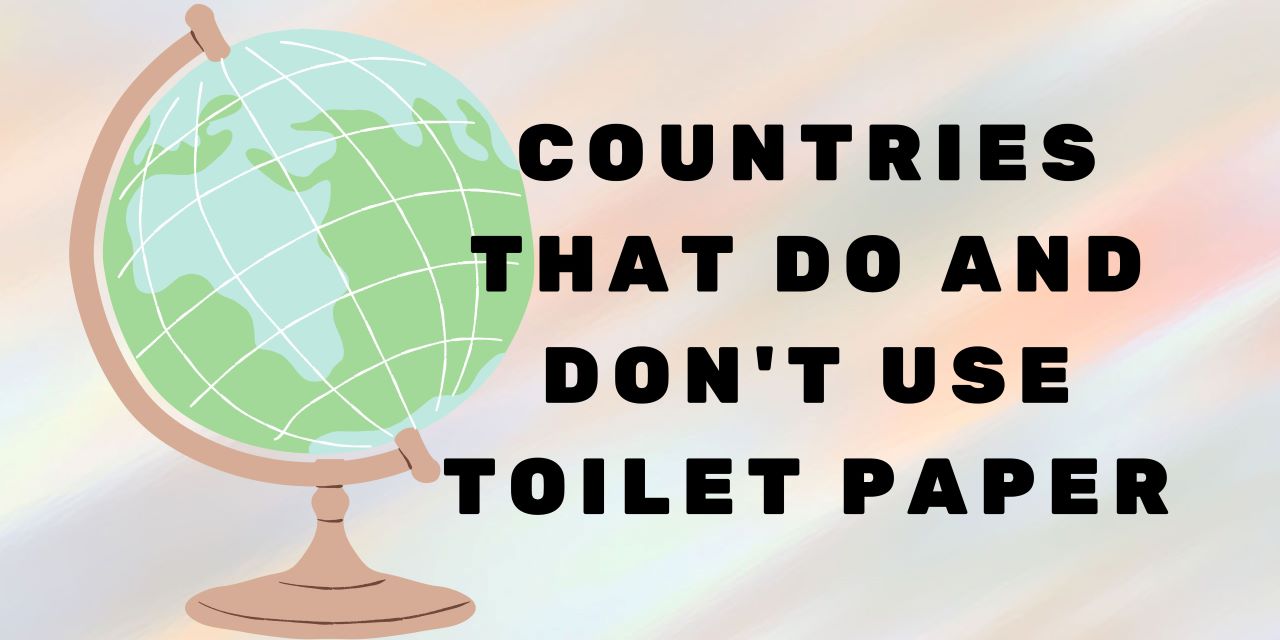Countries That Do and Don't Use Toilet Paper

Toilet paper is an essential item in our daily lives. It is used for personal hygiene after using the toilet. It is a common practice in most parts of the world, but the usage of toilet paper varies in different countries. In this article, we will discuss the countries that do and don't use toilet paper, along with the alternatives they use.
Toilet Paper Usage in Developed Countries
Developed countries like the US, UK, Germany, France, and Australia commonly employ toilet paper. In these countries, toilet paper is readily available in stores and is considered a necessity in households. The usage of toilet paper in these countries is so common that it is considered a part of their daily routine.

Toilet Paper Usage in Developing Countries
Toilet paper usage is less common in developing countries like India, China, Brazil, and South Africa compared to developed nations. In these countries, the availability of toilet paper is limited, and its usage is often considered a luxury. As a result, many people in these countries resort to alternatives such as wiping with water or cloths.
Toilet Paper Alternatives
In some countries, bidets are a popular alternative to toilet paper. Bidets are a type of plumbing fixture that is used for personal hygiene after using the toilet. They are commonly used in countries such as Italy, Spain, and Japan. In addition to bidets, some people in developing countries wipe with water or cloths instead of using toilet paper.
Cultural Differences in Toilet Paper Usage
Cultural differences also play a role in the usage of toilet paper in different countries. In Europe, the usage of toilet paper is common and widely accepted. In Asia, bidets are a popular alternative to toilet paper. In the Middle East, water is used for personal hygiene after using the toilet. In Africa, the usage of toilet paper is not as common and many people resort to alternatives such as wiping with water or cloths.
Toilet Paper Availability in Different Countries
The availability of toilet paper varies in different countries. In developed countries, toilet paper is readily available in stores and is considered a necessity in households. In contrast, in developing countries, the availability of toilet paper is limited and its usage is often considered a luxury. The limited availability of toilet paper in developing countries is due to various factors such as poverty, low income, and lack of infrastructure.
The Environmental Impact of Toilet Paper Usage
The usage of toilet paper has a significant impact on the environment. Deforestation is one of the major environmental concerns associated with the production of toilet paper. Trees are cut down to produce the pulp needed to make toilet paper, which contributes to deforestation and the loss of wildlife habitats.

In addition, the production of toilet paper requires a large amount of water and energy, which contributes to water and energy waste. Finally, the disposal of used toilet paper also creates waste management problems.
Conclusion
In conclusion, the usage of toilet paper varies in different countries. In developed countries, toilet paper is widely used and considered a necessity, while in developing countries, the usage of toilet paper is limited and many people resort to alternatives such as bidets, wiping with water, or cloths. The usage of toilet paper also has a significant impact on the environment, particularly concerning deforestation and waste management.
FAQs
-
What countries do not use toilet paper?
A. Some developing countries such as India, China, and Africa do not use toilet paper as commonly as developed countries. Instead, they use alternatives such as bidets, wiping with water, or cloths.
-
How is toilet paper made?
A. Toilet paper is made from pulp, which is obtained from cutting down trees. The pulp is then processed to create the soft, absorbent sheets of toilet paper that we use.
-
Why do some countries use bidets instead of toilet paper?
A. Bidets are a popular alternative to toilet paper in some countries due to cultural differences and personal preferences. They are also considered more hygienic and environmentally friendly than toilet paper.
-
Is toilet paper environmentally friendly?
A. Toilet paper is not environmentally friendly due to the deforestation and waste management problems associated with its production and disposal.
- How can we reduce the environmental impact of toilet paper usage?
A. One way to reduce the environmental impact of toilet paper usage is to switch to more environmentally friendly alternatives such as bidets or use recycled toilet paper. It is also important to reduce waste by using only the necessary amount of toilet paper.


Leave a comment